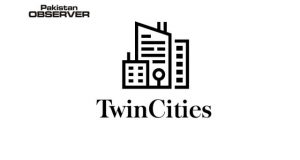Zubair Qureshi
Pakistan urgently needs a comprehensive country review on the Sustainable Development Goals (SDGs) mainstreaming into development projects, data collection and reporting mechanisms to ensure sharp increase in performance.
The country is severely lagging behind on all the SDGs except two including SDG-1 No Poverty and SDG-13 Climate Action where Pakistan is on the ‘right direction’ as mentioned in the Sustainable Development Report (SDR) 2020. Pakistan is ranked on 134 with a total score of 56.17, much lower than some of the least developed African countries. The UN report on SDGs shows a bit more performance than the SDR.
Devcom-Pakistan Director Munir Ahmed highlighted these points while presenting the Pakistan’s country review of Sustainable Development Goals (SDGs) as reported in the Sustainable Development Goals (SDR) 2020. The report is the annual research publication by the UN Sustainable Development Solutions Network (SDSN), set up in 2012 under the auspices of the UN Secretary-General.
SDSN mobilizes global scientific and technological expertise to promote practical solutions for sustainable development, including the implementation of the Sustainable Development Goals (SDGs) and the Paris Climate Agreement. SDSN works closely with United Nations agencies, multilateral financing institutions, the private sector, and civil society.
Speaking on the webinar on ‘Country Review: Pakistan’s Way Forward on SDGs” organized by the Development Communications Network (Devcom-Pakistan), Munir Ahmed said: “There is no progress on eight SDGs in the five years since the UN SDGs regime was launched. They include No Hunger (SDG-2), Quality Education (SDG-4), Gender Equality (SDG-5), Affordable and Clean Energy (SDG-7), Industry, innovation and infrastructure (SDG-9), Sustainable cities and communities (SDG-11), Life Below Water (SDG-14), and Partnerships for SDGs (17).
He said: There is slight improvement in Good Health and Wellbeing (SDG-3), Clean Water and Sanitation (SDG-6), Decent Work and Economic Growth (SDG-8), and Peace Justice and Strong Institutions (SDG-16). Pakistan reported nothing on Reduced Inequalities (SDG-10) and Responsible Production and Consumption (SDG-12).
Research analyst Adil Rashid in his keynote presentation detailed many lacunas hampering Pakistan’s performance on SDGs including bureaucratic hurdles and the usual habit of slowing down the process. He said: SDGs are not a separate phenomenon but a mechanism to measure the performance of different sectors on certain indicators to evaluate overall progress of the country on social, economic and environmental indicators. Mainstreaming of these indicators, monitoring and reporting are the three main components which could be easily handled by coordination among the stakeholders.










